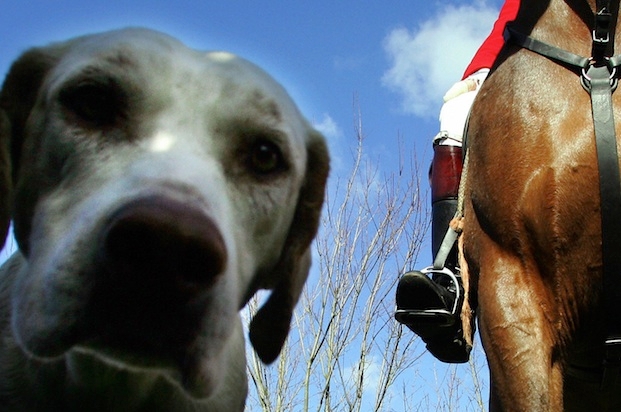During my years at the League Against Cruel Sports, the one single message we impressed upon people at every opportunity was that a ban on hunting with dogs was popular, simple and inexpensive. And animals, of course, would be saved from a cruel death.
This belief was encouraged by a Tony Benn quote, which refers to everyone suddenly being on the winning side after any social change: ‘The change happens and you can’t find anyone that doesn’t claim to have been fighting for it with you.’
It was echoed shortly after I had left the LACS (having become disillusioned with the campaign and doubtful that any genuine animal welfare benefit would be gained by a ban on the use of scenting hounds). A former colleague was quoted as saying: ‘Within a couple of months [the discussion] would all be over and everyone would wonder what all the fuss was about.’
Following the passing of the Hunting Act in 2004, it didn’t take long for the same official to have had a change of heart, however. Post Hunting Act, he said in a national newspaper interview that foxes ‘are being shot by farmers, caught in snares and still hunted, despite the ban. I think it’s had virtually no effect.’
It’s worth examining the original message that was so eagerly and naively accepted by numerous politicians: that a ban would be popular, simple, and inexpensive.
Relying on public opinion polls to make law, especially on a subject that few people know much about (and affects even fewer) is not good politics. Indeed, it almost negates the need for Members of Parliament. Hunting with hounds does not exist in isolation and other methods of control will fill the vacuum, yet these points are never included in polls. Add in other questions – ones that imply a repeal of the Hunting Act would legalise dog-fighting and badger baiting – and people who would like to strengthen the current law get the answers that they want. So is a hunting ban really all that popular when the full facts are known?
If hunting with dogs wasn’t such a complex issue, the Hunting Act could have continued to be a simple one or two-page Bill, just as previous unsuccessful Bills had been. But, as the various Parliamentary stages began to draw in more and more difficulties that needed to be addressed, so the exemptions became more numerous and convoluted. The Labour Party had stated that shooting would be left unaffected by a hunting ban, not realising that game-keepers use dogs underground when flushing out foxes to safeguard birds to be shot. During the many committee stage debates, a hurried exemption had to be inserted in the Bill allowing this method to remain legal in order to protect birds such as the pheasant, of which there are millions – yet the exact same process cannot be used to protect a rare bird like the hen harrier, or even a farmer’s lamb. As situations that occur in the real world were slowly becoming apparent, other nonsensical clauses had to be added to allow dogs to hunt rats, but not mice; permitting the hunting of rabbits, but not hares. A wounded hare may be hunted however, but not a wounded fox.
Simple? Certainly not, and completely illogical too. No wonder individuals and groups totally unconnected to hunting, such as members of the judiciary, the police, veterinarians and senior civil servants, have all criticised this legislation as being confusing and badly drafted law.
Now to the cost of this whole exercise. Analysis of published accounts of the three main organisations that campaigned for the Hunting Act indicate that almost £30 million was spent in the run-up to the law being passed. This does not include the unknown (and rising) figure paid over the years by the tax-payer on Parliamentary time, wasted police time and failed court cases. The cost of indulging a minority who are obsessed with hunting is obscene.
Yet had animal welfare genuinely been improved, I would never have used that expression, and the debate would be over. People rightly give enormous sums of money to end truly horrendous animal cruelties, both in this country and around the world. But while so much has been spent on passing the Hunting Act, and even more in trying to enforce it, not a single penny has been spent by any of the anti-hunting groups to assess the effect the ban has had on wildlife. If those who support a hunting ban were so sure of their argument, surely some research should have been commissioned to finally silence any opposition and scupper any chance of repeal?
The sad fact is, animal welfare has not been improved. A method that is naturally selective, testing and non-wounding has been denied to those who manage wildlife for no other reason than many politicians at the time (some with their own prejudices), believed the false claims of a relatively few animal rightists.
This is why, 12 years after the Hunting Act was placed on the statute book, the issue is still as contentious as ever and it will remain so until a fair, balanced and workable solution that genuinely improves animal welfare is reached.
Jim Barrington is animal welfare consultant to the Countryside Alliance.






Comments